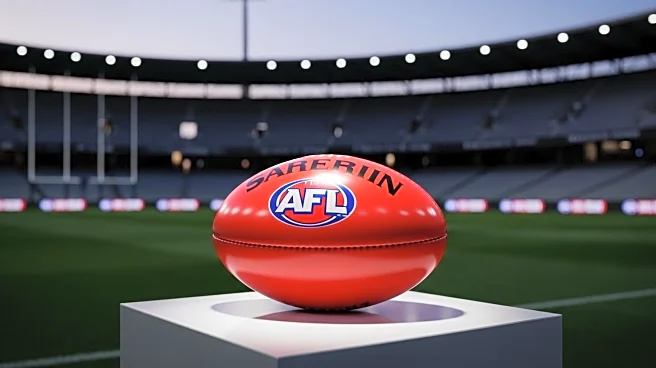What's Happening?
Nat Fyfe, a prominent figure in Australian rules football, has announced his retirement, marking the end of an era for fans of the Fremantle Dockers. Fyfe, who has been a significant player for the team over 16 seasons, has been admired for his talent and character both on and off the field. His retirement comes after a career filled with highs and lows, including over 25 surgeries and playing fewer games than some of his contemporaries. Fyfe's decision to retire has deeply affected fans who have followed his career and admired his contributions to the sport.
Why It's Important?
Fyfe's retirement is significant as it represents a shift in the Fremantle Dockers' team dynamics and the broader AFL community. His presence has been a source of inspiration and loyalty for fans, embodying qualities such as integrity and perseverance. The end of his career may impact the team's performance and morale, as well as the emotional connection fans have with the sport. Fyfe's retirement also highlights the physical demands and challenges faced by professional athletes, prompting discussions on player welfare and career longevity.
What's Next?
As Fyfe steps away from professional play, the Fremantle Dockers will need to adapt to his absence and potentially restructure their team strategy. Fans will likely continue to support the team, but the emotional connection may shift as they adjust to new team dynamics. Fyfe's retirement could also lead to increased focus on the development of younger players who may step up to fill the void left by his departure. The AFL community will watch closely to see how the Dockers perform in upcoming matches without their long-time hero.
Beyond the Headlines
Fyfe's retirement underscores the cultural significance of sports heroes and the impact they have on fans' lives. His career has been a source of joy and meaning for many, illustrating the deep emotional ties people have with sports figures. This event may prompt reflections on the nature of fandom and the role of sports in personal identity and community cohesion. Additionally, it raises questions about the sustainability of sports careers and the support systems in place for athletes transitioning out of professional play.









